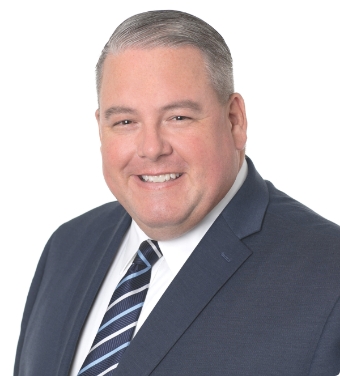
What is probate?
Probate is the legal process by which the assets of a person whos passed are managed and dispersed to their beneficiaries. It involves authenticating the will, identifying and appraising assets, paying debts and taxes, and distributing the remaining assets in accordance with the stipulations of the will or the laws of intestacy if no will exists.
When is probate necessary?
Probate is typically necessary when a person dies with assets only in their name, especially if they have significant financial holdings or real estate. The specific threshold for when probate is required often varies by jurisdiction.
How long does the probate process usually take in Rocklin?
The duration of probate can vary widely based on the complexity of the estate, the jurisdiction or any potential disputes or complications. Probate can be completed in a few months for simple cases but it can take a year or more for complex cases.
What are the steps involved in the probate process?
You can find the straightforward breakdown of the process here “Your Free Probate Guide: The Probate Process“
How much does probate cost in California?
Probate costs vary based on criteria such as the size of the estate, the complexity of the assets, and whether or not there are any disputes or challenges. Court fees, attorney fees, appraisal fees, and other administrative fees may be incurred during the probate process.
Here is a probate fee calculator where you can get an estimate of costs. We do not see any information you submit to the calculator. It provides you with a breakdown of the total fees and an explanation of the calculations.
What assets go through probate?
Probate is often used for assets that were entirely owned by the deceased. Real estate, bank accounts, investment accounts, personal property, and automobiles are all examples. Assets held in trust, jointly owned assets with right of survivorship, and certain types of accounts with designated beneficiaries may be exempt from probate.
Can probate be avoided?
Yes, the best option is to create a comprehensive estate plan. Some other options are jointly owning assets with right of survivorship, designating beneficiaries on accounts, utilizing payable-on-death or transfer-on-death designations, and making lifetime gifts.
What happens if someone dies without leaving a will?
When someone dies without a will, they are said to have died intestate. In such instances, the inheritance will be allocated in accordance with the jurisdiction’s intestacy laws, which usually prioritize spouses, children, and other close relatives as beneficiaries.
What is a personal representative or executor, and what are their responsibilities?
A personal representative, often known as an executor or administrator, is the person charged with overseeing the probate process. Their duties include collecting and safeguarding assets, paying debts and taxes, distributing assets to beneficiaries, and doing other administrative duties.
How are debts and taxes handled during California probate?
During the probate process, the personal representative identifies and notifies creditors, pays valid debts with estate assets, and advocates for any questionable claims. Taxes, such as income tax and estate tax, may need to be filed and paid from the estate’s assets.
Can beneficiaries or heirs contest a will during probate?
Yes, beneficiaries or interested parties have the right to oppose a will during probate if they believe it is invalid due to influence, lack of capacity, or fraud. This can lead to a judicial action in which the court determines the legitimacy of the will.
What happens if there are multiple wills?
If there are multiple wills, the court will determine which will is valid based on evidence and legal requirements. This process can involve examining the circumstances surrounding the creation of each will and the testator’s intent.
What is the role of the court in the California probate process?
The court’s function in probate is to oversee the process, ensure that the deceased person’s desires (as expressed in the will or under intestacy rules) are fulfilled, and to handle any disputes or concerns that may emerge during the administration of the estate.
How are assets distributed during probate?
During probate, assets are dispersed in accordance with the directions of the valid will or intestacy laws. The personal representative is in charge of carrying out the distribution, and assuring that debts, taxes, and administrative expenditures are paid first.
Can a person’s estate go through probate in multiple states?
Yes, if the person that passed had assets in many states, their estate might be probated in multiple states. This can complicate matters because each state may have its own probate rules and processes.
What is the difference between probate and non-probate assets?
Probate assets are those entirely owned by the deceased and are often subject to the probate process. Assets that pass directly to designated beneficiaries or co-owners outside of probate, such as assets held in trust, jointly owned assets with right of survivorship, or assets with beneficiary designations, are examples of non-probate assets.
Are there any alternatives to probate?
The best alternative to probate is to have an estate plan.
Are there any specific laws governing probate in California?
Yes, probate laws can vary by jurisdiction. Each state may have its own statutes and regulations that govern the probate process, so it’s important to consult the laws specific to your location.
Do I need an attorney to go through the probate process?
While it is not always mandatory to hire an attorney, it is often recommended to consult with a qualified attorney, especially if the estate is complex or if there are disputes or challenges involved. An attorney can provide legal guidance, ensure compliance with the law, and help navigate the probate process effectively.
Filippi Law Firm, P.C., provides legal services in estate planning, probate, trust administration, trust litigation, and personal bankruptcy in the greater Sacramento area, with a focus in Rocklin, Roseville, Lincoln, and Granite Bay. Give us a call at (916) 333-7910 or fill out the contact form to get in touch with our office. Consultations are free, and they can be done over the phone, via Zoom, or in person at our office in Rocklin. Prepare for your future and work with the best estate planning attorneys today.
We are here to help.
You might find these blog posts helpful: “What is Probate?” “Do I Need to Go Through Probate?“

 By: James Filippi
By: James Filippi